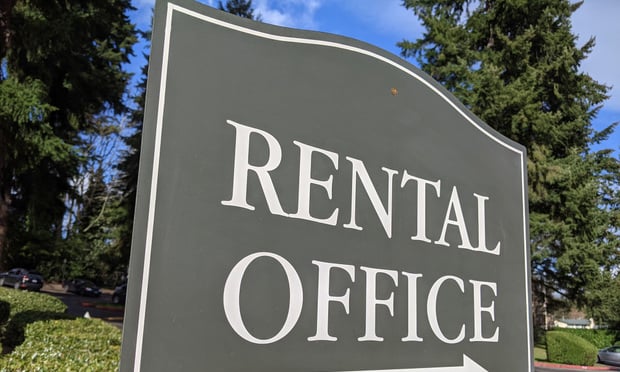
NEW YORK CITY—Libor, an index that underpins $350 trillion in financial contracts, has been a benchmark for global borrowing for nearly half a century. But it will soon go the way of BOAC and the Beatles, two British institutions that were still recent history when Libor was devised. Will the sunset of Libor in 2021 plunge lenders and borrowers into darkness and confusion? And what will take its place?
In the view of Jillian Mariutti, director at Mission Capital Advisors, the answer to the first question is no, because the writing has been on the wall since the Libor manipulation scandal of 2012.
As for the second question, the successor to Libor—at least for the US market—is likely to be the Secured Overnight Funding Rate (SOFR), which the Federal Reserve Bank of New York is expected to begin publishing in mid-2018.
First, some background on how Libor is determined. At 11 a.m. Greenwich Mean Time every day, a group of major banks will be asked at what rate could they borrow funds from other banks on an unsecured basis. “Libor was supposed to reflect the actual health of the financial system,” Mariutti tells GlobeSt.com. “If banks feel confident, they report a low interest rate. But if they have a lack of confidence, then they report a higher rate. During the crisis, there was manipulation and collusion; banks were falsely inflating and deflating the rate, and Libor lost credibility because it became unreliable.”
Following the scandal, “there was no surprise that Libor as we knew it would have to change,” says Mariutti. “We all knew it was coming. In fact, in 2014 the Federal Reserve convened the Alternative Reference Rates Committee (ARRC) to explore the alternatives for replacing Libor.”
This past summer, the ARRC chose SOFR as its preferred alternative to Libor. “It's going to be based on the cleared and bilateral repurchase transactions of the US Treasury,” Mariutti explains. “Put another way, you're basically looking at the extremely liquid, high-volume repo market,” which generates some $600 billion to $800 billion in transactions daily. “Libor transactions pale in comparison.”
Unlike Libor, an unsecured rate, SOFR is tied to repo transactions and is a secured rate because the Treasury serves as collateral. “So is there going to be some sort of adjustment to SOFR, a spread to SOFR to make it an unsecured comp?” asks Mariutti. “That's still to be determined.”
As for what happens to loans and other transactions currently tied to Libor and with maturities extending beyond the phase-out, Mariutti points out that “a sizable amount of commercial real estate floating-rate loans mature before '21.” Of course, there will be some transition pains, she cautions, as there are plenty of CRE loans that will mature after Libor ceases to be published.
“We all need to make sure we pay closer attention to the replacement language in the loan documents,” says Mariutti. “When you look at your credit agreement, there will be language that says something to the effect of, 'if Libor no longer exists, here's your replacement.' The most common is probably the Fed Funds fallback.”
Mariutti expects Libor and SOFR to exist in parallel with one another for some time before only SOFR is left standing. “It's probably going to take three to five years before SOFR is a viable Libor alternative,” she says. “We definitely expect a phase-in to be gradual.”
Some dates to look out for: The Fed plans to begin publishing the daily SOFR rate the first half of 2018, to be released at 8:30 a.m. EST daily. Any derivatives of SOFR are anticipated to start trading by year-end 2018. “They're going to start working on the futures infrastructure, and it probably won't be until 2021 that you're going to see an actual SOFR rate show up in credit agreements or interest rate swaps,” Mariutti says.
“Here's another thought,” says Mariutti, “and it would make life so easy. With one fell swoop, could they just change the definition of Libor? If you just changed the definition to 'SOFR plus 10' or something like that, then every contract that references Libor would reference SOFR. But everything is still TBD.”
Want to continue reading?
Become a Free ALM Digital Reader.
Once you are an ALM Digital Member, you’ll receive:
- Breaking commercial real estate news and analysis, on-site and via our newsletters and custom alerts
- Educational webcasts, white papers, and ebooks from industry thought leaders
- Critical coverage of the property casualty insurance and financial advisory markets on our other ALM sites, PropertyCasualty360 and ThinkAdvisor
Already have an account? Sign In Now
*May exclude premium content© 2025 ALM Global, LLC, All Rights Reserved. Request academic re-use from www.copyright.com. All other uses, submit a request to [email protected]. For more information visit Asset & Logo Licensing.








